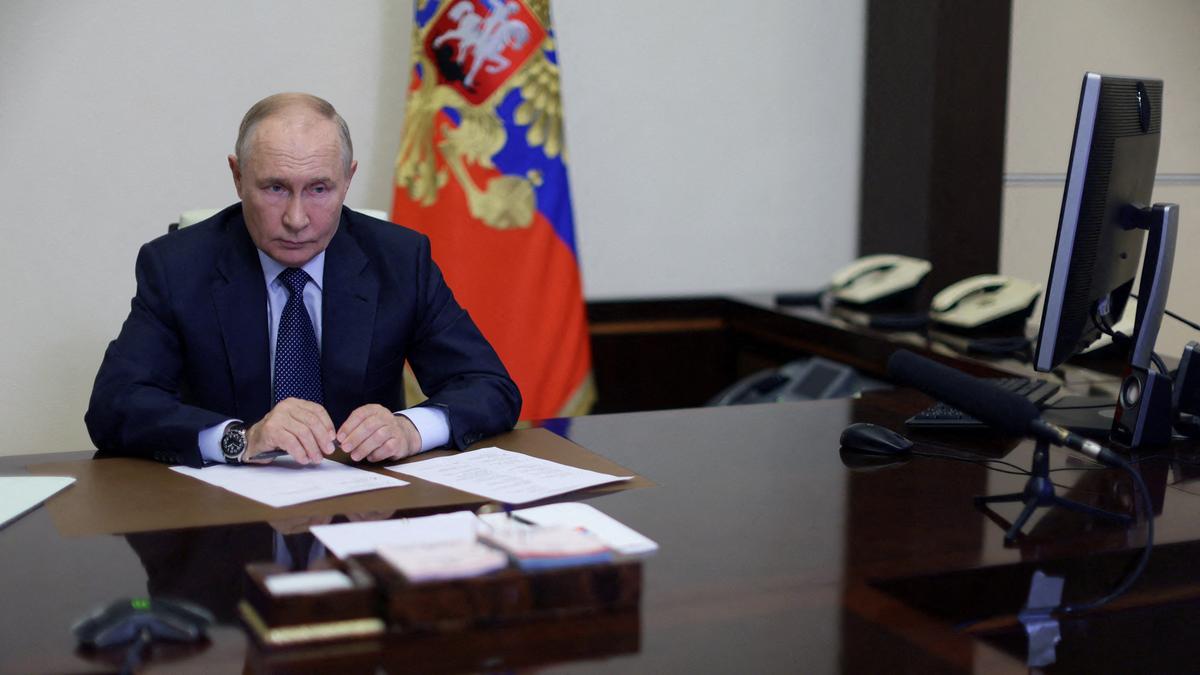Sahra Wagenknecht, a former member of the far-left Die Linke party, has founded her own party, BSW, and is seeking to make a significant impact on German politics by advocating for a more conciliatory approach towards Russia and stricter immigration policies. Her campaign has sparked debate and generated attention in the run-up to regional elections in the former East Germany.
Wagenknecht’s Rise and Campaign Platform
Wagenknecht’s BSW party stands out with its unconventional approach to international relations and immigration, garnering both support and criticism. She calls for an end to Germany’s support for Ukraine and a dialogue with Russian President Vladimir Putin, arguing that the West should have addressed Russia’s security concerns before the war began. Her stance on immigration, advocating for a reversal of the current government’s policies and adopting a model similar to Denmark’s restrictive approach, reflects her concern over uncontrolled migration.
A Call for Peace and a Crackdown on Immigration
Wagenknecht’s central theme revolves around prioritizing peace and addressing concerns about uncontrolled immigration. She passionately connects her campaign message with the anxieties of her childhood, drawing on the fear of nuclear war that permeated her upbringing in communist East Germany. Her calls for peace resonate with those who share a desire to end the conflict in Ukraine, while her stance on immigration resonates with concerns about social cohesion and economic pressures.
BSW’s Potential Impact
Despite Wagenknecht’s pronouncements against collaborating with the far-right AfD, some analysts see BSW’s positions on Ukraine and immigration as aligning with those of the AfD. This creates a complex dynamic where BSW could potentially influence the formation of ruling coalitions in the upcoming regional elections. While the AfD is unlikely to secure a majority government, the lack of willingness to collaborate with them might create a situation where BSW becomes a kingmaker, wielding considerable influence on the political landscape.
The Future of German Politics
Wagenknecht’s success in securing a double-digit score in the upcoming regional elections could fundamentally alter the political landscape. It could transform BSW from a media phenomenon into a political force capable of influencing policy on national level. As the election results unfold, analysts will closely observe the potential of BSW to shape German politics and determine if it becomes a key player in the national arena.
BSW and the AfD: Allies or Rivals?
Wagenknecht adamantly disavows any cooperation with the AfD, citing their extreme right-wing ideology as an insurmountable barrier. However, the similarities between their positions on Ukraine and immigration have led to speculation about potential collaboration. While BSW rejects the AfD’s platform, the parallels raise questions about the degree of divergence in their approaches to these critical issues.
Exploring the Political Spectrum
The positioning of BSW within the German political landscape is complex and potentially volatile. While Wagenknecht attempts to draw a clear line separating her party from the AfD, the degree of convergence on certain issues invites speculation about the nature and degree of political alliance. Further scrutiny will be necessary to accurately gauge the extent of overlap and potential for collaboration between BSW and the AfD, providing valuable insight into the dynamics of the German political system.
A Potential Shift in German Politics
Wagenknecht’s ambitious campaign aims to shift the political discourse in Germany. She seeks to appeal to voters who feel alienated by mainstream parties and crave an alternative. If BSW emerges as a strong force in the regional elections, it will not only alter the balance of power but also prompt a reevaluation of German political dynamics.
Navigating a Complex Landscape
The impact of BSW’s entry into the political arena is multifaceted. While some analysts predict it could be a game-changer for the German political landscape, others point to potential pitfalls. Wagenknecht’s calls for peace with Russia and stricter immigration policies have resonated with a significant segment of the electorate, raising the possibility of shifting political tides. The outcome of the upcoming elections will provide a critical assessment of BSW’s appeal and potential for influencing German politics in the years to come.
Takeaway Points
- Sahra Wagenknecht’s BSW party has emerged as a new force in German politics, advocating for a more conciliatory approach towards Russia and stricter immigration policies.
- Wagenknecht’s campaign resonates with concerns about uncontrolled immigration and a desire for peace in Ukraine.
- While the AfD is unlikely to come to power, BSW’s potential for influencing coalition formations raises concerns about potential political alliances.
- The success of BSW in the upcoming elections could lead to a significant shift in German politics and introduce a new political force capable of shaping the future of the nation.




